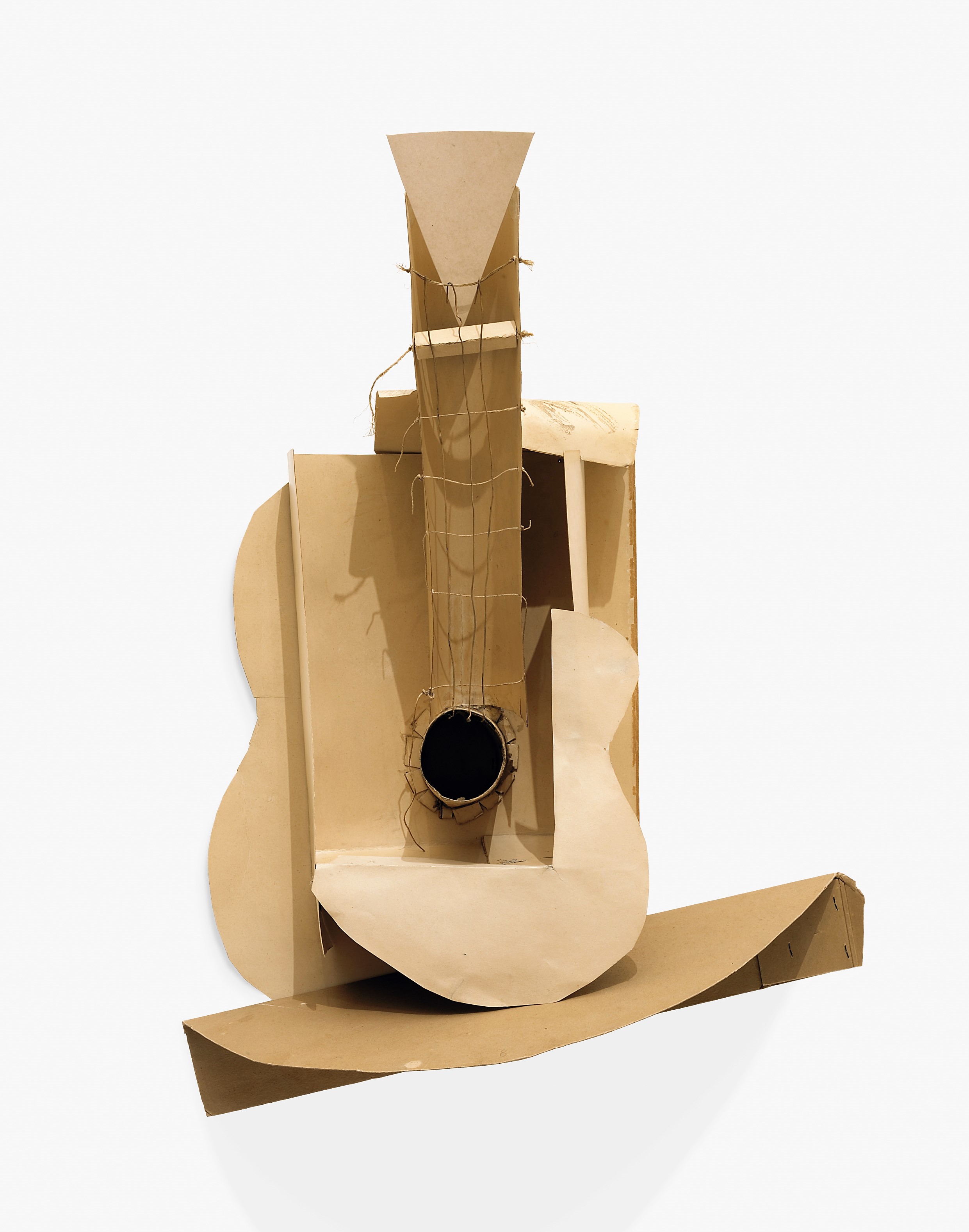
Pablo Picasso. Still life with Guitar. Variant state. Paris, assembled before November 15, 1913. Subsequently preserved by the artist. Paperboard, paper, string, and painted wire installed with cut cardboard box, Overall: 30 × 20 1/2 × 7 3/4″ (76.2 × 52.1 × 19.7cm). The Museum of Modern Art, New York. Gift of the artist.
Friday, March 23, 2018 - 10:00am to 7:00pm
Carolyn Hoff Lynch Lecture Hall, Chemistry Building, 231 South 34th Street, University of Pennsylvania, Philadelphia, PA
SEEING MORE IN THE WORK OF ART: A Celebration of Christine Poggi
EVENT DETAILS HERE
Dr. Christine Poggi, Professor Emerita in the History of Art Department, became the Judy and Michael Steinhardt Director of the Institute of Fine Arts at New York University in September 2017. A symposium on March 23, 2018, will recognize her thirty years of service to the University of Pennsylvania. The theme, “Seeing More in the Work of Art,” borrows from the preface of Dr. Poggi’s first book, which describes an approach to the history of art that combines close visual analysis of individual objects with historically-informed methods and the insights of literary and critical theory. This mode of inquiry “encourages us to question traditional interpretations,” Dr. Poggi writes, but, more importantly, it enables us to see differently—“to see more of the formal innovations of art that by now seem familiar.” As is evident in her publications and to anyone who has studied with her, Dr. Poggi has a remarkable ability to "see more" in the most challenging works of twentieth- and twenty-first-century art, attending to the smallest formal gestures to extract new understanding of images whose meanings are supposedly resolved or closed to us. Her enthusiasm for seeing more in the work—in both the material object and in the artistic labor leading to its creation—is infectious and an indelible part of her legacy at Penn.
This event is sponsored by the History of Art Department; Center for Italian Studies; Program for Gender, Sexuality, and Women’s Studies; Russian and East European Studies Department; and Wolf Humanities Center.
FREE AND OPEN TO THE PUBLIC

